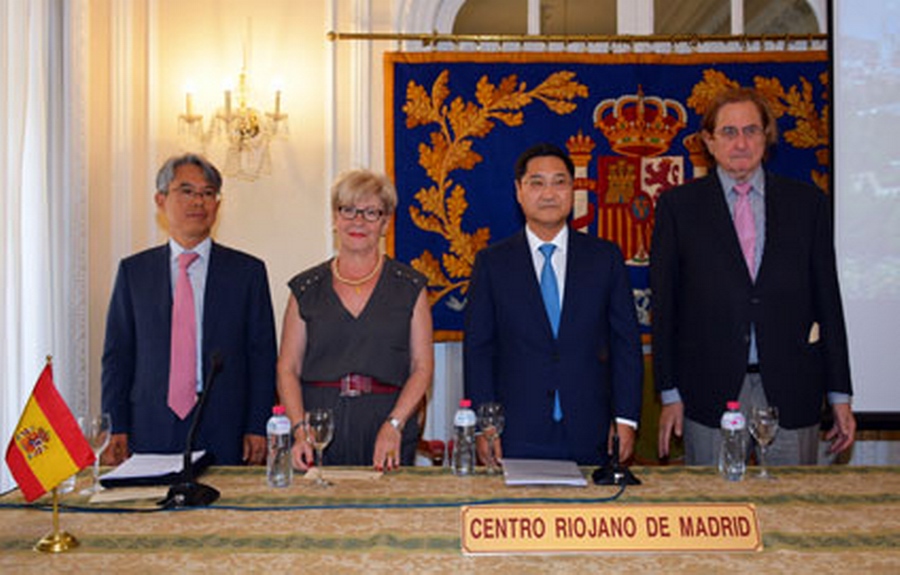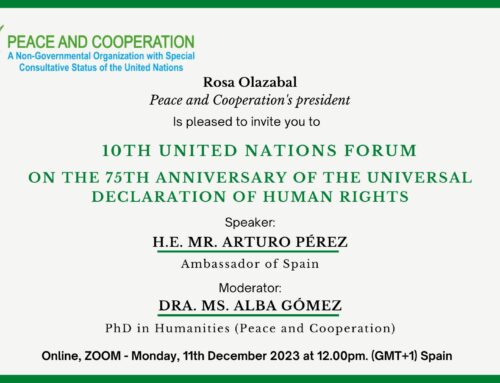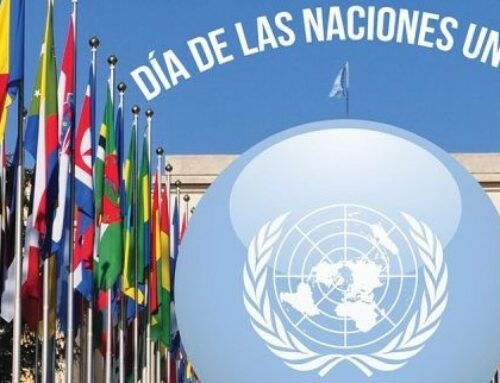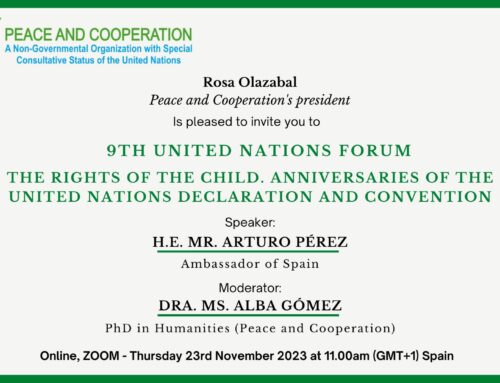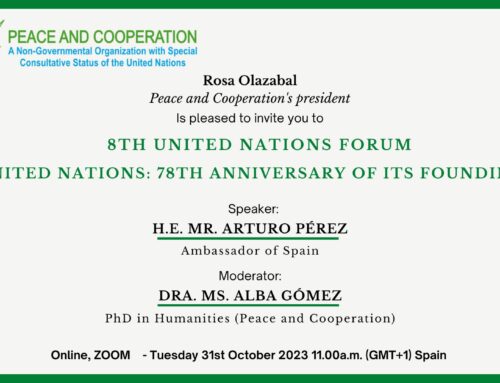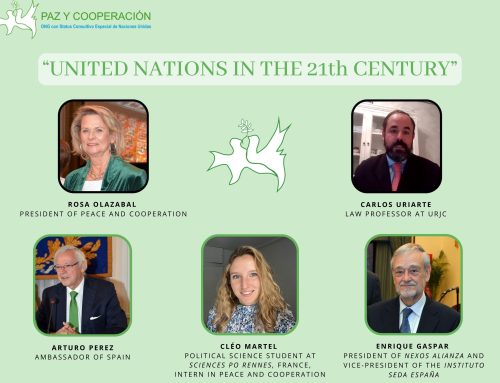The sport offers us images of violence of crazed crowds even from parents who hit out among them for their children and hatred and xenophobic scenes, but sometimes sport builds bridges of peace.
One example of this is what was recounted in June 19 with the aim of concluding the I United Nations Forum, by the Peace and Cooperation Foundation and the prestigious Riojano Centre of Madrid. This time, Peace and Cooperation invited His Excellency Mr. Hong-Jo-Chun, Ambassador of the Korean Republic, who gave a very brilliant lecture on the issue “peace in service of sport in the Korean Peninsula”
Through this presentation, the Ambassador tried to show that the Winter 2018 Olympic Games represented a key element which fostered a favorable atmosphere for dialogue among the two Koreas. In this way, this cooperation atmosphere appears as a sign of hope and peace for the international community.
The lecture started with the intervention of the minister-counsellor Jong-UK-Choi who provided us information on the economic and political situation of Korea. He explained us how Korea developed over time, from the ashes of the war to the first line on the global stage.
The division of the Korean Peninsula and the war among both Koreas (1950-1953) reduced the country to poverty. With more than 3 millions of deaths, the country became the second poorest country in the world. The american General Douglas MacArthur stated that Korea had no future. However, nowadays, Korea is one of the most solid and consolidated democracies in the world and its economy plays a key role in the international trade. Its GDP increases by a factor of 500 between 1956 and 2018. Jong-UK-Choi explained how Korea managed to reverse the trend and disprove the terrible prediction of the General MacArthur.
Firstly, Korea became aware of its limits, in other words, of its small territory, without natural resources. For this reason, the government decided to invest more in education build a brilliant future for Korea. It is an undeniable success because, nowadays, 70 percent of the students are admitted in universities and where Koreans are the ones that are best trained at the global level. The Korean government was committed to innovation and technological development as well as to an opened economy. Korea has free trade agreements with 52 countries.
In spite of everything, Korea faces several challenges, such as the decline in growth, increase in inequalities and the rising national unemployment rate. To reverse this trend and ensure the country’s economic stability, Korea developed an economic strategy. This strategy consists of strengthening innovation and democratizing the Korean economy.
Afterwards, the Ambassador of the Korean Republic, His Excellency Mr. Hong-Jo-Chun, took the floor to highlight the fundamental role of the sport for peace among both Koreas. He started reminding the climate of tension among both Koreas from 2016 to 2017, due to several provocative acts on the part of North Korea with nuclear tests in the South Korean territory. This posed a great threat to global security, and the United States president, Donald Trump, suggested the possibility of a preventive attack against North Korea.
But there had been a very big change in this climate throughout the year 2018, with the celebration of an important date for both Koreas in a symbolic place, Panmunjom, with the presence of Kim Jong-un and the president Moon Jae-in. In October 2018 the president Moon visited North Korea, with the objective of favouring a Korean Peninsula without nuclear weapons and threats, a project for peace. In October 18 the president Moon found the Pope Francisco, who supported the Korean government’s hopes concerning this peace process.
The Ambassador highlighted that the sport, and, mainly, the 2018 Olympic Games, were key elements to starting a dialogue among both Koreas. With the support of the Olympic International Committee, the president Moon invited North Korea to participate in the Winter Olympic Games.
The Korean government has become aware of the fact that the sport can not solve all the problems such as the nuclear tests and proliferation, as well as environmental issues which are sensitive for the international community. However, the Olympic Games’ organization prompted an atmosphere to start dialogue and cooperation among both Koreas. This represents a peace message and a great hope of reconciliation for the whole international community.
The lecture concluded in a brilliant way and with great positivity. The audience enthralled with this topic, asked a lot of questions. This fantastic lecture closed the I United Nations
Forum. It is a testimony of the Forum’s success, which will be renewed in September 2019 with new lectures.
The questions which stood out were the ones of Maria Luisa Antuña, Enrique Gaspar, Emilio Ginés, Milagros Martín and Alfonso Ramonet.
To conclude, the Peace and Cooperation Foundation and the Riojano Centre of Madrid managed to create a propitious background for discussions and the awareness of essential issues to the stability and security of the international community.
In September the lectures will be held with a II United Nations Forum and Peace and Cooperation will open its structures to welcome every friend of the foundation who wish to create peace backgrounds in their families and activities. It is a pedagogy for peace, global education as a school of life.

